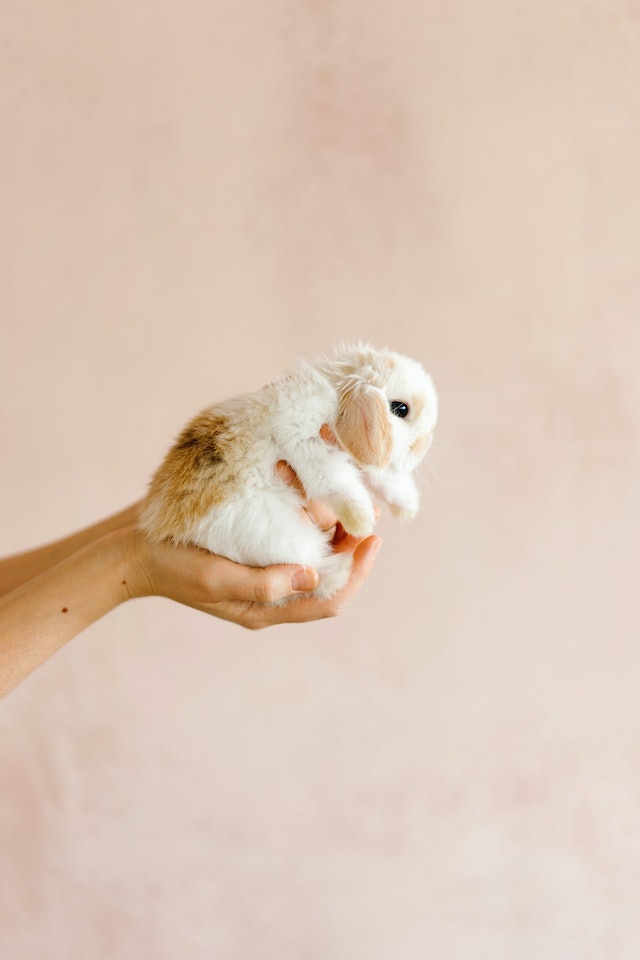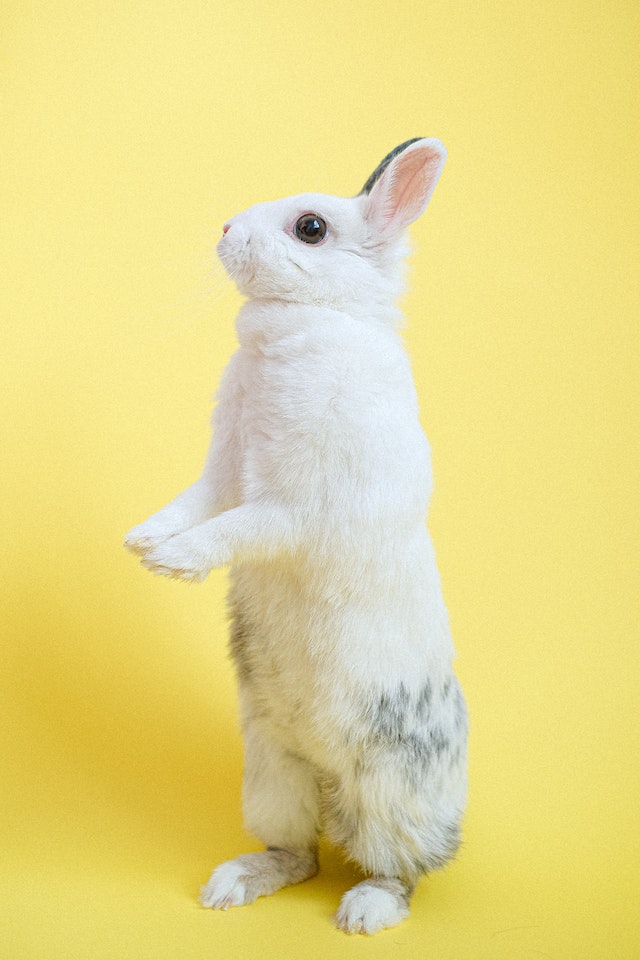Pet Rabbits make for adorable and interesting pets. Their playful and affectionate nature delights rabbit owners. This comprehensive guide provides an overview of popular rabbit breeds, advice on choosing and buying a pet rabbit, proper care and handling, common health issues, and answers to frequently asked questions.
Popular Pet Rabbits Breeds
There are many breeds of domestic rabbits to choose from. Here are 10 of the most popular:
Holland Lop
- Small, floppy-eared breed
- Weighs 2-4 pounds
- Calm, friendly temperament
- Requires moderate grooming
Netherland Dwarf
- Tiny rabbit that weighs just 1-3 pounds
- Comes in a variety of colors and patterns
- Lively and energetic
- Low maintenance fur
Mini Rex
- Glossy and velvety fur coat
- Weighs 3-4.5 pounds
- Intelligent and playful
- Higher grooming needs
Lionhead
- Distinctive mane around head
- Weighs approximately 3-4 pounds
- Great choice for children
- Moderate shedding
Dutch
- Iconic black and white markings
- 5-6 pounds in weight
- Can be skittish initially but become friendly
- Short fur requires minimal brushing
Flemish Giant
- Very large breed weighing 10-15 pounds
- Calm temperament
- Higher food and housing costs due to size
- Prone to fur matting – needs frequent grooming
English Lop
- Distinctive lop ears hang down
- 6-10 pounds in weight
- Gentle personality
- Thick coat requires lots of grooming
French Lop
- Large breed at 9-12 pounds
- Relaxed and easygoing
- Can be litter trained
- Softy, mid-length coat
Mini Lop
- Small lop-eared rabbit
- Just 3-6 pounds in adulthood
- Playful and energetic
- Short fur needs weekly brushing
Polish
- Tiny, petite breed at 2-3 pounds
- Naturally clean and odor-free
- Shy but enjoys handling
- Low-maintenance fur

Buying a Pet Rabbits
Here are some tips for choosing and purchasing a happy, healthy pet rabbits:
- Decide if a rabbit is the right pet for your family, lifestyle and living situation. Do thorough research on their care needs.
- Avoid pet stores; go to reputable breeders or rabbit rescues instead. Meet the rabbit’s parents for health and temperament indicators.
- Select breeds well-suited to living indoors. Dwarf breeds often make good apartment pets.
- Pick rabbits 8–12 weeks old for easier training and bonding. Check gender if you already have a spayed/neutered rabbit.
- Examine fur, eyes, ears and underside. Choose rabbits that are clean, bright-eyed and alert. Avoid runny noses, matted fur.
- Don’t pick nervous, anxious or aggressive rabbits. Go for ones that seem happy to see you.
- Question breeders about diet, grooming routines and socialization. Avoid rabbits kept solely in cages.
- Prepare housing, litter box, toys and other supplies prior to bringing the rabbit home. Bunny-proof any areas they’ll access.
- Budget $25 to $50+ for purchase from breeders. Rescue rabbits have an adoption fee of around $25 to $100.
Caring for Your Pet Rabbits

Proper housing, nutrition and health care are key to keeping pet rabbits happy and thriving:
- House rabbits indoors in roomy enclosures/cages. Provide at least 8 square feet of space.
- Make enclosures multi-level with ramps and shelves to encourage activity. Include hideaways and toys.
- Bunny-proof room(s) to give them exercise space when you’re home. Supervise carefully.
- Use bedding like non-toxic paper, straw or fleece. Avoid cedar and pine shavings.
- Litter-train your rabbit. Spot clean daily; full clean weekly. Avoid scented or clumping litter.
- Rabbits enjoy willow balls, tunnels, cardboard boxes and chew toys. Rotate to keep them engaged.
- Diet should comprise 80% hay, 10-15% greens, 5% pellets. Limit sugary treats. Always provide fresh water.
- Brush shorthairs 1-2 times weekly. Longhairs need daily brushing to prevent tangles and fur matting.
- Trim nails monthly. Check teeth and ears weekly for issues. Get yearly checkups with a rabbit-savvy vet.
- Pick up and handle rabbits properly to avoid injury. Support hindquarters when lifting.
Common Health Issues in Rabbits
While rabbits are generally healthy when cared for properly, watch for these common conditions:
- Gastrointestinal stasis – Caused by diet changes. Symptoms include lack of appetite and lethargy. Can be fatal if untreated.
- Dental problems – Misaligned or overgrown teeth. Signs include drooling and difficulty eating. Requires trimming under anesthesia.
- Sore hocks – Wounds on rear feet from sitting in urine-soaked surfaces. Keep surfaces clean and dry.
- Respiratory infections – Caused by bacteria or fungus. Antibiotics generally prescribed. Ensure proper ventilation.
- Ear mites – Parasites that lead to scabbing. Treat with anti-mite medication.
- Obesity – Avoid by limiting pellets and treats. Can cause joint problems.
Schedule regular vet checkups to diagnose and treat any issues early. Spaying/neutering can reduce some health risks.
Frequently Asked Questions
How much does a pet rabbits cost?
The initial cost is $25-$50 from a breeder or rescue. Supplies will cost $150-$300. Annual costs for food, litter, vet care average $400-$600.
What supplies do I need for a pet rabbits?
A roomy cage/enclosure, water and food bowls, litter box and litter, pellets, hay, toys, brush, nail clippers, rabbit-safe cleaners, and food dishes.
What vegetables and fruits can rabbits eat?
Rabbits enjoy leafy greens like kale, romaine, parsley, cilantro, broccoli, as well as carrots, apples, berries, melons, and bananas in moderation.
How long do pet rabbits live?
Domestic rabbits have a life expectancy of 8-12 years with proper care, nutrition, and vet attention. Some breeds like the Flemish Giant can live 14+ years.
Do rabbits make good pets for children?
Rabbits are generally a good option for kids over age 7-8 able to handle them gently. Supervision is still required during all interactions.
How often do rabbits need to see a vet?
Healthy rabbits should see a rabbit-savvy exotic vet annually for a wellness checkup. Sick rabbits need prompt vet attention for diagnosis and treatment.
Conclusion
From cute Lionheads to giant Flemish breeds, rabbits make engaging companions when their needs are met. Do research to pick a breed well-suited to your home and lifestyle. Offer proper housing, training, exercise, grooming and veterinary care to keep your pet bunny healthy and happy for years to come.
References
[1] Pet Rabbits – House Rabbit Society [2] A Guide to Caring for Your Rabbit – AVMA [3] Rabbit Breed Profiles – PetHelpful [4] Lifespan of a Pet Rabbit – My House Rabbit [5] Rabbit Proofing Your Home – PetMD


